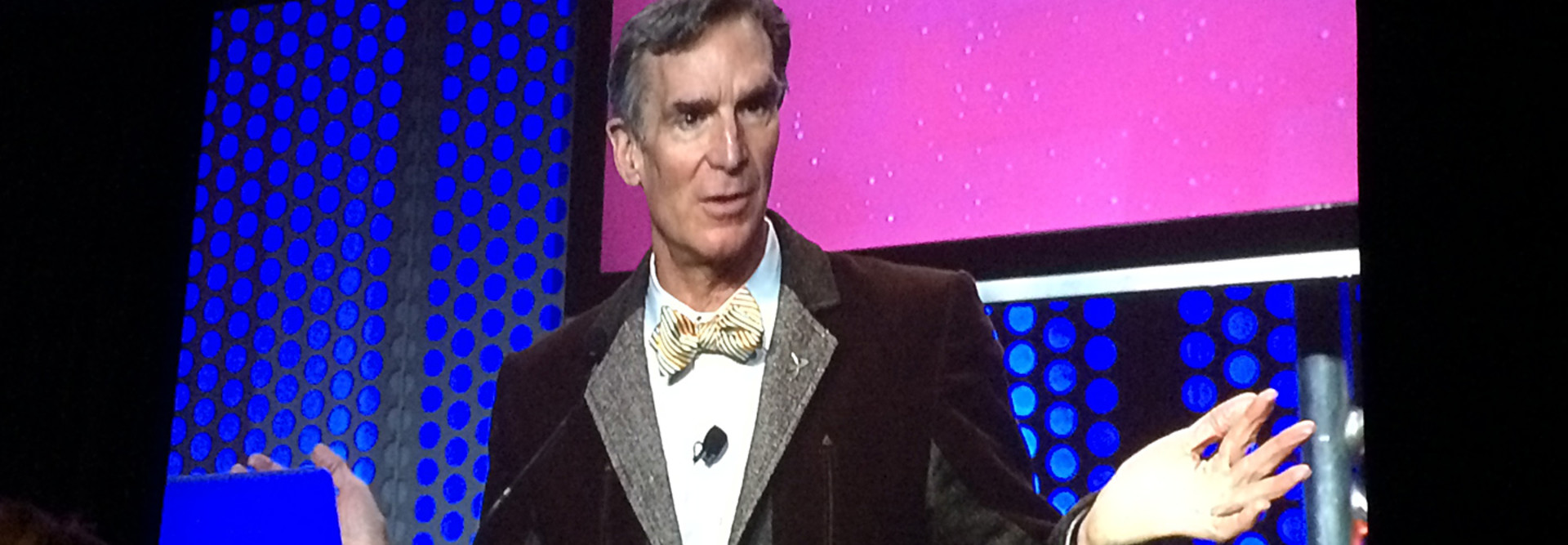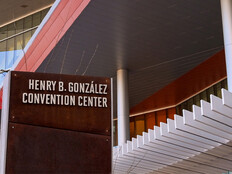TCEA 2015: Bill Nye Says Science Teachers Must Foster the Next ‘Greatest Generation’
Bill Nye "The Science Guy" — wearing his signature bow tie and yelling, "Howdy!" — leapt onto the stage with gusto for the opening keynote speech at the TCEA 2015 educational technology convention, in Austin, Texas.
Nye made a name for himself in the early 1990s through his science-focused TV show, which captured the hearts and minds of many young viewers. On Wednesday, 20 years after his show finished its five-year run, Nye was greeted by a crowd that included thousands of his fans.
Most of the more than 700 sessions at the five-day conference focus on using technology effectively in the classroom. But Nye spent his hour on stage talking about how teachers can help shape the future — from humanity’s response to climate change to space exploration and our legacy in the stars.
It's incumbent on science educators to help foster the next generation of great thinkers who will navigate the challenges ahead, Nye said.
"With our brains we can nurture a new great generation, and — dare I say it — change the world," he said.
EdTech is covering TCEA 2015, including articles on breakout sessions, keynotes and the pulse on social media. Keep up-to-date on all of our coverage by visiting our TCEA 2015 conference page.
Nye referenced the Greatest Generation, a term coined by journalist Tom Brokaw that describes those who survived the Great Depression and went on to fight in World War II or to support the war effort at home.
A similar dose of courage, compassion and collaboration will be needed to tackle the world's biggest problems, Nye said.
"But in the big picture, it's not that hard, you guys," he added. "We will do it by using technology we have today and technology in the very near future."
Nye's climate-change solution involves reinventing our power sources and funding models to support these efforts. By combining energy-efficient technologies, such as wind power, advanced solar panels, liquid-metal batteries, and nanotube power lines, greenhouse gases could be lowered.
To fund these methods and keep them sustainable, Nye suggested another layer of planning — setting a federally mandated fee for those who produce carbon emissions. An idea like that may terrify some Americans, Nye admitted, but he said the country could set the tone for the rest of the world and be the catalyst for real change.
"If the U.S. were out in front on climate-change legislation, everyone else would follow," he said.
Reginald Brewer, an educator from Chavez High School in Houston, Texas, says he walked away from Nye's presentation inspired to help students have an inquisitive spirit and an open mind about science.
"We should be helping them become more inquisitive about science and life in general," Brewer says. "I don't think they're asking enough questions."
Jill Gaston, an instructional technologist at Center ISD, in Center, Texas, took the same note from Nye's presentation.
"We need to reignite the passion in kids for science," says Gaston. "Our kids are going to have to be educated or our world is going to fall apart."









